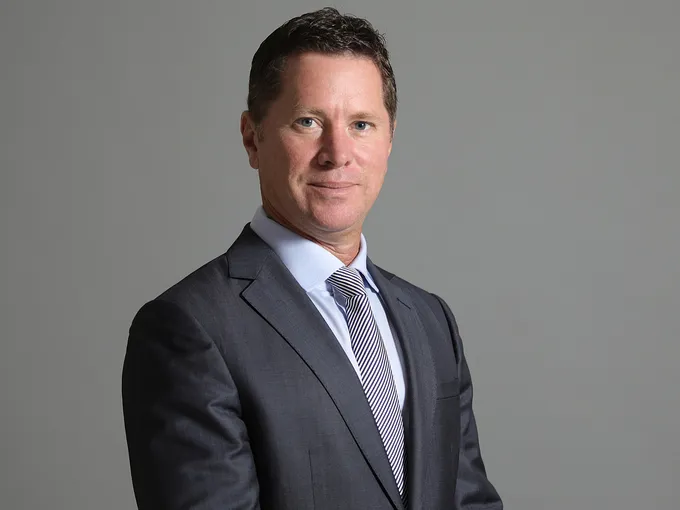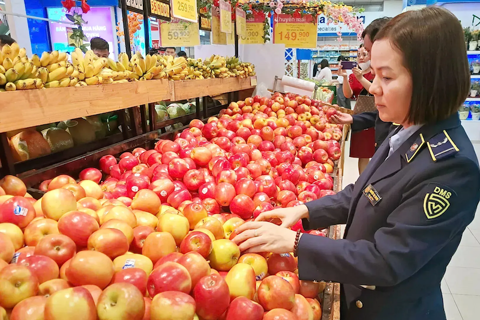Vietnam economy shows “incredible resilience” at unprecedented times, HSBC Vietnam CEO says
Vietnam continues to be among the world’s most attractive emerging economies, the HSBC Vietnam CEO Tim Evans has said.
At a time of unprecedented crisis, the Vietnamese economy has shown its incredible resilience, CEO of HSBC Vietnam Tim Evans commented.
| CEO of HSBC Vietnam Tim Evans. Source: HSBC. |
For this year, HSBC forecast Vietnam to achieve GDP growth of 2.6% in 2020 and then rebound strongly with 8.1% growth in 2021.
“Despite 2.6% being the lowest growth rate in many years, Vietnam is still the only ASEAN country to evidence positive growth this year,” he noted.
The CEO also referred to a forecast from the International Monetary Fund (IMF) expecting Vietnam’s GDP growth to reach 2.4% for 2020 and remains one of four economies in the world that have positive growth of GDP per capita this year, including Taiwan, Egypt and China.
In 2020, manufacturing and exports remain the two driving forces for Vietnam's economic growth, together with foreign direct investment (FDI) which also plays a crucial role.
Vietnam’s international profile continues to grow with increasing economic integration from joining the WTO and the signing of 14 active multi- and bi-lateral trade agreements. With new trade deals in place, including the EVFTA, RCEP and upcoming UKVFTA, “Vietnam will be able to diversify export markets and trading partners, which is also one of the best ways to minimise risks from excessive dependence on a specific trading partner which Covid-19 has made this risk apparent,” he noted.
Mr. Evans pointed to the “remarkable determination” of Vietnamese business community as they are constantly looking to find ways to overcome the challenges.
According to the recently published HSBC Navigator report, 68% of Vietnamese companies implemented changes over the last 12 months to cope with the pandemic. In addition, moving forward, they intend to focus their investment on sales channels, up-skilling their workforce, enhancing the customer experience and improving cash flow/capital management in 2021.
They also intend to invest in technologies that will help improve speed to market, customer targeting and enhance automation/ operational efficiency.
“It is worth noting of not only a continuous growth, but much of Vietnam’s recovery comes from internal forces,” stated Mr. Evans.
November indicators showed that Vietnam was on track for a solid economic recovery.
Manufacturing has grown double digits for the first time since the start of the Covid-19, while exports continue to shine due to increased electronics shipment.
The index of industrial production (IIP) for 11 months of 2020 is estimated to increase by 3.1% over the same period last year. The export turnover of 11 months of 2020 is estimated to achieve US$254.6 billion, up 5.3% year-on-year.
“We continue to hold a positive outlook for the Vietnamese manufacturing industry and for the Vietnamese economy as a whole,” he stressed.
Looking forward to 2021
Entering 2021, Vietnam will continue its recovery momentum by benefiting from domestic consumption, stable trade growth and FDI inflows, stated Mr. Evans. Meanwhile, in the context of consumption being negatively affected by the pandemic, inflation will continue to be controlled below the average level of 4% set by the National Assembly.
The trade agreements, with which negotiation concluded, or signed or in effect such as UKVFTA, EVFTA or RCEP will continue to be a solid premise to boost growth in the export sector, pushing trade surpluses. Meanwhile, with its solid macroeconomic background and the ability to handle and repel the pandemic, it is not difficult to see that Vietnam will continue to be a bright investment destination in the region, especially in the electronic component manufacturing industry.
Against the context of unpredictable fluctuations of exchange rates, businesses, especially in export-import area and businesses with foreign loans in foreign currencies need to actively use hedging tools, especially through derivatives such as term contracts, interest rate swap contracts, etc. to ensure their proactiveness in cash flow planning and profit balancing.
According to Mr. Evans, joining free trade agreements means increasing competition, but “it is great to compete with the very best,” which forces companies to be nimble, adjust and innovate.














